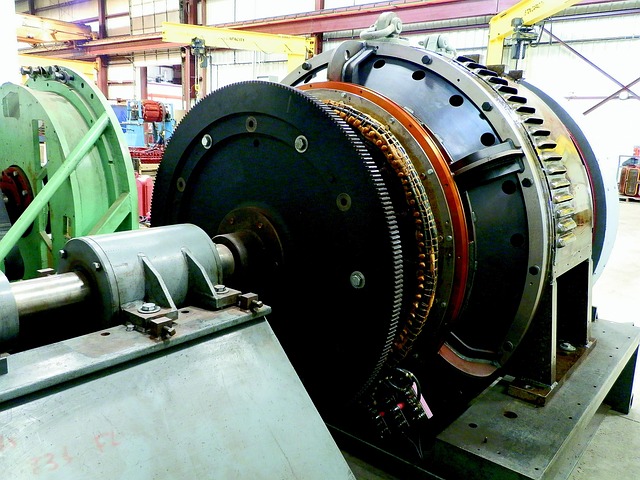Heavy metals testing for CBD is a critical process ensuring the purity and safety of cannabidiol products by detecting and quantifying trace amounts of contaminants like lead, mercury, and arsenic. This method safeguards consumers from potential health risks associated with industrial hemp cultivation or extraction. Advanced instrumental methods such as ICP-MS and AAS guarantee precise analysis, meeting stringent regulatory standards. Robust heavy metals testing is essential for maintaining consumer trust, product quality, and brand credibility in the dynamic CBD industry.
In the burgeoning market of cannabidiol (CBD) products, ensuring product safety and quality through comprehensive heavy metals testing is paramount. This article delves into the intricate details of heavy metals testing for CBD, exploring its significance, common contaminants, advanced testing methods, and regulatory implications. From understanding essential techniques to implementing best practices, this guide equips CBD brands with crucial knowledge to maintain purity and meet industry standards, fostering consumer trust in today’s competitive landscape.
Understanding Heavy Metals Testing

Heavy Metals Testing for CBD is a critical process that ensures the purity and safety of cannabidiol (CBD) products. This testing method detects and quantifies any trace amounts of heavy metals, such as lead, mercury, and arsenic, which can be present in the cultivation or extraction processes. Since CBD is often derived from industrial hemp, it’s essential to guarantee that these contaminants are absent or within safe limits.
The process involves utilizing advanced instrumental methods like Inductively Coupled Plasma Mass Spectrometry (ICP-MS) and Atomic Absorption Spectroscopy (AAS) to analyze samples with precision. These techniques allow for the detection of even minimal heavy metal residues, ensuring that CBD products meet stringent regulatory standards and maintain their integrity for consumers.
The Role of CBD in Product Safety

In ensuring product safety, especially in the rapidly growing cannabidiol (CBD) market, thorough testing is paramount. One critical aspect often overlooked is the inclusion of heavy metals testing for CBD products. This step is crucial as heavy metals like lead, mercury, and arsenic can be harmful or even toxic to consumers. Given that CBD is increasingly integrated into various products, from edibles to topicals, contaminations from heavy metals during production or sourcing could pose significant risks.
Therefore, brands must incorporate robust heavy metals testing procedures into their quality control measures. This involves utilizing advanced analytical techniques such as Inductively Coupled Plasma Mass Spectrometry (ICP-MS) to detect and quantify any trace elements present. By implementing these rigorous testing methods, CBD product manufacturers can assure consumers of the safety and purity of their offerings, fostering trust in the market.
Why Test for Heavy Metals?

Heavy metals testing for CBD products is a crucial step in ensuring product safety and quality. While CBD itself has gained significant attention for its potential therapeutic benefits, the cultivation and extraction processes can inadvertently introduce heavy metals into the final product. These metals, such as lead, mercury, and arsenic, are toxic to humans and can cause severe health issues if consumed in sufficient quantities.
Testing for heavy metals is essential to protect consumers and maintain the integrity of CBD products. It helps identify contaminated batches, allowing manufacturers to take corrective actions and ensure that only safe and clean products reach the market. Moreover, strict adherence to heavy metals testing standards enhances product credibility, builds consumer trust, and aligns with regulatory requirements, which are becoming increasingly stringent in the CBD industry.
Common Heavy Metals Found in CBD Products

Heavy metals are often inadvertently introduced into CBD (Cannabis sativa L.) products during cultivation, extraction, and manufacturing processes. This is particularly concerning as certain heavy metals can pose significant health risks if ingested in high concentrations. Common heavy metals found in CBD products include lead, mercury, and arsenic, which can contaminate the final product through various means. For instance, lead may leach into CBD oils from old or contaminated equipment used during extraction, while arsenic could be present due to poor-quality cultivation practices or contamination from nearby industrial activities.
Heavy metals testing for CBD products has become increasingly important as consumers seek assurance regarding the purity and safety of their purchases. Rigorous quality control measures, including thorough heavy metals screening, are essential to ensure that CBD supplements, oils, and other products meet safety standards. Regular testing and transparency in reporting these findings empower consumers to make informed choices and help maintain the integrity of the CBD industry.
Standard Testing Methods and Techniques

In the realm of Heavy Metals Testing for CBD, standard methods and techniques play a pivotal role in ensuring product safety and purity. The process typically involves advanced instrumental analysis to detect and quantify trace amounts of heavy metals like lead, mercury, and arsenic, which can be present due to various factors, including environmental contamination and manufacturing processes. Techniques such as Inductively Coupled Plasma Mass Spectrometry (ICP-MS) are often employed for their exceptional sensitivity and accuracy in identifying these metallic impurities.
These testing methods require rigorous quality control measures and standardized protocols to maintain consistency. Sample preparation is a critical step, where techniques like acid digestion are used to extract and concentrate heavy metals before analysis. The data obtained from these tests is then meticulously evaluated against established standards and regulatory guidelines to guarantee that CBD products meet the required safety benchmarks, thereby fostering consumer confidence in their purity and potency.
Ensuring Accuracy and Reliability

Accurate and reliable data is paramount in any scientific study, especially when dealing with intricate subjects like Heavy Metals Testing for CBD. At every stage of the testing process, strict protocols must be followed to maintain integrity. This includes using validated methods and high-quality standards to ensure results are consistent and reproducible.
Sample preparation, instrument calibration, and data analysis all contribute to the overall accuracy. By implementing rigorous quality control measures and employing advanced analytical techniques, researchers can confidently interpret results, ensuring that any potential heavy metal contamination in CBD products is accurately detected and quantified.
Regulatory Considerations for CBD Brands

In the ever-growing market for CBD (Cannabidiol) products, regulatory considerations are paramount to ensuring safety and quality. One critical aspect that CBD brands must address is heavy metals testing. This involves rigorous analysis to detect any trace elements of heavy metals like lead, mercury, and arsenic, which can be harmful to consumers. Given the diverse sourcing of CBD ingredients and the potential for contamination during cultivation or extraction processes, implementing robust heavy metals testing protocols is essential. Such measures not only protect consumer health but also build trust in the brand among discerning customers.
Regulatory bodies worldwide are increasingly focusing on setting standards for CBD products, including mandatory safety assessments. Brands that fail to comply with these regulations face strict penalties and potential market disruptions. Therefore, it’s crucial for CBD businesses to stay informed about local and international guidelines, invest in reliable testing methods, and maintain comprehensive documentation of their product’s safety profiles. This proactive approach not only helps brands avoid legal pitfalls but also positions them as responsible industry leaders.
Best Practices for Incorporating Metal Testing into Your Workflow

Incorporating heavy metals testing for CBD into your workflow is essential to ensure product safety and maintain consumer trust. Start by selecting reliable, third-party laboratories equipped with advanced instrumentation like ICP-MS (Inductively Coupled Plasma Mass Spectrometry) for accurate detection of trace metal contaminants. Standardize testing protocols across all production batches, ensuring consistency in methods and frequency based on your manufacturing scale and product type.
Implement robust quality control measures, including regular calibration and validation of testing equipment, as well as staff training to maintain accuracy. Establish clear communication channels between your team and the lab to streamline sample preparation, collection, and reporting. Lastly, consider integrating digital platforms for efficient data management, allowing for real-time tracking and access to test results, enhancing transparency and regulatory compliance in your CBD product production.
